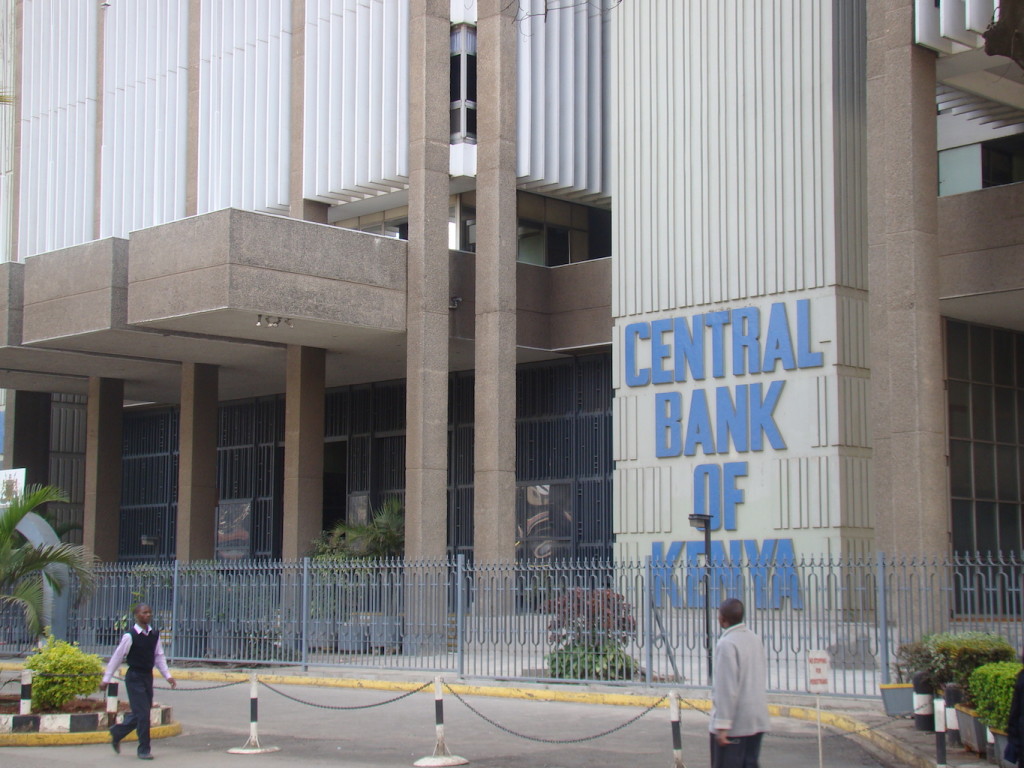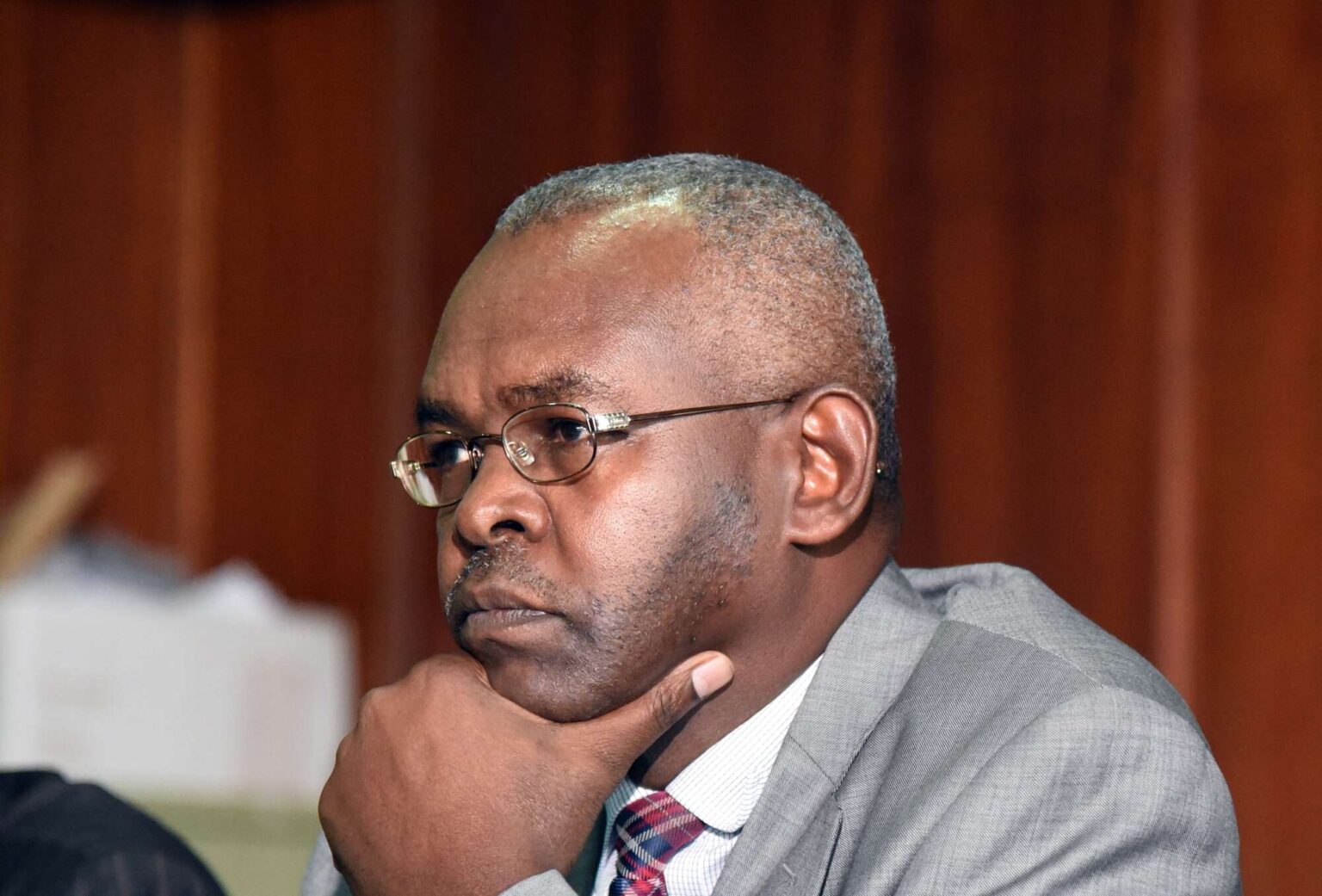- 1.5°C future on the line: Why nations must cut emissions now or lose target
- IMF Growth Forecasts: BRICS to Lead the World in the Next 5 Years
- Vantage Capital seals exit from PickAlbatros Hotels after $18.4M pandemic boost
- Madica backs Earthbond in bold pre-seed bet on sustainable solutions
- Venture capital and debt drive growth in Kenya’s agri-tech sector
- Sustainability Week Africa: Pioneering change amidst climate challenges
- Refugee Crisis in Chad as War and Hunger in Sudan Drive Thousands Across Border
- Senegal 2050: A Blueprint for Economic Transformation
Author: Jack Oduor
Experienced Editor with a demonstrated history of working in the media and video production industry. Skilled in Breaking News, Media Relations, Radio, Corporate Communications, and Social Media. Strong media and communication professional with a Diploma In Mass Communication focused in Broadcast Journalism from K.I.M.C.
- Financing by Venture Capital Firms (VC) is the leading source for injecting capital into startups, accounting for 29 percent of the deals.
- Findings show that venture debt is becoming a crucial funding tool, especially for climate tech startups with limited access to traditional equity financing.
- The survey notes that to support this growth, investments in digital and energy infrastructure are essential.
Kenya is emerging as a leader in sourcing capital for its agricultural technology and food startups across the African continent. A large portion of capital for African startups still comes from foreign countries, with approximately 60 per cent, coming from international sources, primarily the United States and the United Kingdom.
On the continent, however, most investors are concentrated in Kenya, Nigeria, and South Africa, where innovation and funding activity are most prominent. Large-scale investments in solar energy solutions and precision agriculture partly drive Kenya’s dominance in the sector.
Read …
- Kenya’s banking sector corporate taxes have been on the rise in the past few years.
- A new analysis shows that the contribution of the banking sector towards Pay-As-You-Earn was 7.79 per cent of all PAYE collected in the country.
- The study included 43 institutions—37 banks and six microfinance institutions.
The total tax contribution (TTC) from Kenya’s banking sector reached $1.5 billion (KSh190.26 billion) in 2023, a 4.96 per cent increase from the previous year, the Kenya Bankers Association has said. This marks the highest TTC since the study began in 2017, representing 8.78 per cent of the total government tax receipts for the financial year ending in June 2023.
According to the Banking Sector Total Tax contribution report, the TTC comprised $793 million (KSh102.52 billion) in taxes borne by the participating banks and microfinance institutions and $678.8 million (Ksh87.74) billion in taxes collected.
While the overall tax contribution grew, …
- Kenya adopts global messaging standard ISO20022, which is the latest international open system for sealing financial deals.
- In the 12 months to August 2024, the country processed a total of over 5.3 million transactions valued at over Sh45 trillion for local currency transactions.
- The new standard’s rich data formats will aid in checking fraud thereby curtailing illicit transactions.
The Central Bank of Kenya (CBK) has announced a transition of the Kenya Electronic Payment and Settlement System (KEPSS) to the internationally recognized Global Messaging Standard (ISO 20022 Standard). The new system is the latest international open standard for financial messaging that is being adopted globally.
Last month, the banking industry regulator directed lenders, including microfinance institutions to start testing of the upgraded system for messaging high-value financial transactions aimed at increasing the speed of transfers while heightening the checks against fraud.
“KEPSS, which is Kenya’s Real-Time Gross Settlement (RTGS) system, is …
- Sub-Saharan Africa economic growth remains stuck in “low gear” with a large youth population at risk of being left behind—The World Bank.
- Currently, seven in 10 children in Sub-Saharan Africa do not have access to pre-primary education.
- The World Bank says stabilizing economies and transforming education to equip the region’s growing workforce with stronger foundational skills and market-relevant expertise is critical.
Despite signs of a fragile economic recovery, Sub-Saharan Africa economic growth remains stuck in “low gear” with a large youth population at risk of being left behind. According to the latest analysis by the World Bank’s Africa Pulse, two factors are critical to jumpstart inclusive growth: stabilizing economies and transforming education to equip the region’s growing workforce with stronger foundational skills and market-relevant expertise.
The report, which is in its 30th edition and on the theme of Transforming Education for Inclusive Growth, says economic activity in the region …
- In Kenya, mobile phone users are opting for internet calls and texting as a measure to cut on costs.
- Last year, customers spent more time on a single on-net call averaging 2.8 minutes.
- Safaricom customers spent more on off-net calls, averaging at 1.4 minutes while Airtel accounted for 33.3% of voice and 10.3% of SMS traffic in Kenya.
An increasing number of mobile phone users in Kenya prefer using internet calls and texting as a measure to cut communication costs, a 2023 report by the Communications Authority shows. This shift is steadily eroding both voice and text revenues for mobile network providers in Kenya.
The report shows that the minutes of use per month per subscription decreased to 120.4 minutes in the three months to December 2023 compared to a higher 123.4 minutes during the previous quarter.
Similarly, short messages sent per month per subscription declined marginally to 65.4 from …
- As workplace environments and changing attitudes evolve, certain habits that may seem harmless could be hindering career advancement.
- Beyond common productivity killers, subtle habits such as chronic procrastination, resisting change, and avoiding difficult conversations can also derail careers.
- Fast-tracking a career could be as easy as monitoring these habits when others fail to.
The old phrase “work smarter, not harder” has never been more relevant than it is today as different industries demand certain work habits to register growth. But as workplace environments and changing attitudes evolve, certain habits that may seem harmless could actually be hindering career advancement, leading to a host of other issues, including workplace depression, poor productivity, and stagnant salaries.
According to one expert, it’s imperative that we recognize and address these bad habits to ensure professional growth.
“The more we accept a workplace that cultivates these habits, the better chance we have of creating higher …
- Bankers in Kenya are grappling with record 18-year high loan defaults due to high interest rates and a tough business environment.
- Central Bank of Kenya Governor Dr. Kamau Thugge says that despite the rise in bad loans, the banking sector remains stable and resilient
- The overall balance of payments is projected to be a surplus of $554 million in 2024 which should result in a reserves buildup of $1,920 million
The rate of loan defaults in Kenya has hit records last seen over 18 years ago as the fiscal policies meant to cushion the country from high inflation take a toll on the banking industry.
Latest industry data by Central Bank of Kenya shows that the ratio of gross non-performing loans (NPLs) to gross loans stood at 16.7 per cent in August 2024 compared to 16.3 per cent two months earlier.
Essentially this means that out of every Sh100 shillings …
- Kenya and the IMF talks on a new loan are making “significant progress,” Central Bank Governor has revealed.
- The country eyes about $487.2 million (Sh62.9 billion) under the IMF’s Extended Fund Facility (EFF) and Extended Credit Facility (ECF).
- Completing the second review under the Resilience and Sustainability Facility (RSF), approved on July 17, 2023, will provide another $120 million to Kenya.
Kenya will receive a loan of up to $1.61 billion (Sh209.3billion) from the International Monetary Fund (IMF) in December to back up the governments reserves, the Central Bank of Kenya has revealed.
This is after the government and IMF agreed to combine the seventh and eighth reviews which will raise the government access to $1.61 billion, increasing the country’s reserves to $1.9 billion (Sh245 billion) by the close of the year.
CBK Governor Dr. Kamau Thugge has confirmed that discussions with the IMF are nearing completion. The talks, have …
- Handcraft artisans in Kenya have over the years been exploited by profit-sapping middlemen who set prices for them.
- According to the Kenya Economic Survey Report 2023, the Jua Kali sector contributed 25% of the GDP, a similar contribution rate to that of agriculture.
- One of the challenges that the engagement is looking to address is the disparity in pricing for similar products, depending on where they are made.
Technology and education are transforming the lives of Kenyan handmade craft artisans, offering new opportunities for growth, sustainability, and global market access. Artisans, who traditionally relied on local markets and limited resources, are now tapping into digital platforms and skill-building programs to expand their reach and improve their livelihoods.
The integration of tech solutions, including e-commerce platforms, social media marketing, and digital payment systems, has enabled artisans to showcase their products beyond Kenya’s borders.
Platforms such as Etsy, Facebook, and Instagram are …
- Kenya has unveiled a plan to help MSMEs meet international export standards.
- Through the plan, Kenyan will be able to secure necessary product certifications for easier entry into foreign markets.
- Kenya plans to send over 300 MSMEs to the trade fair, focusing on presenting high-quality, export-ready products.
Kenya’s Ministry of Co-operatives and Micro, Small and Medium Enterprises has launched a new initiative aimed at enhancing regional trade and improving the export competitiveness of high-potential products. This program seeks to address existing supply gaps in global markets and help local businesses tap into higher price segments.
The initiative will include boosting the readiness and organisation among Micro, Small, and Medium Enterprises (MSMEs) to meet strict international quality and quantity export standards.
The Cabinet Secretary for Cooperatives and MSMEs Wycliffe Oparanya said that through the plan, Kenya will be able to secure necessary product certifications for easier entry into foreign markets.
“Central …














